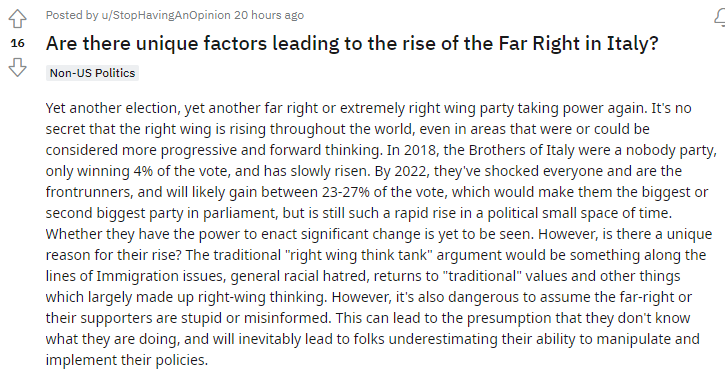
In the (supposedly) fantasy world of George Orwell’s 1984, geopolitical life is divided into three major blocs.
The only one we see in the story world is Oceania, home of protagonist Winston Smith. This consists of Britain, the Americas, Southern Africa, Australia and Oceania. This bloc is always at peace with one of the two other blocs, and always at war with the other.
The other two blocs are Eurasia, which roughly means Europe plus all of Russia and parts of Central Asia, and Eastasia, which roughly means China, Japan, Korea and parts of South East Asia.
Inbetween each of the blocs is a contested zone that is essentially no-man’s land. In the story world of 1984 there is one such zone between Oceania and Eurasia, and one such zone between Oceania and Eastasia (there are others, but only the ones referring to Oceania are mentioned in the book).
1984 was published in 1949, almost three-quarters of a century ago. It has proven incredibly prescient, because if one looks around the world today it appears very similar to the then-future world described by Orwell.
Oceania is today’s Anglo-Judaic Empire, i.e. Britain and most of the former British Empire. Unlike in 1984, the Oceania equivalent today includes Japan and Korea.
Eurasia is today’s Russia. In 1984, Eurasia is Russia plus a conquered Europe. In today’s world, of course, Russia has shown little ability to conquer Europe. Perhaps they have the will, but the ability is another thing.
Eastasia is today’s China plus North Korea. In 1984, Eastasia included Japan, South Korea and some of South East Asia. At the moment, those areas are Oceanian territory. But if the Chinese waged a lightning war at some point in the future, they could conceivably take them over.
Already one combat zone is active on the border between Oceania and Eurasia (The European Union is effectively territory held by Oceania for now), in Ukraine. This zone might drift westward such that Oceania gets pushed back to the British Isles. If it did, it would be exactly like Orwell’s prediction.
Even if Orwell’s prediction wasn’t geographically accurate, it’s still temporally accurate. In 1984, it turns out that wars are supposed to go on forever, specifically because this wastes resources, because if resources are not wasted then people have time to think about their situation and that leads them to rebel against the government.
On the Oceania/Eurasia border in today’s world, Russia and Ukraine also seem to be fighting such a forever war. Even though Western countries are spending tens of billions on arming Ukraine, the front lines move very little. Both sides have been fighting over one town, Bakhmut, for seven months straight. So little has happened in 15 months, it’s easy to imagine the two might still be at war in 15 years.
Many are predicting that we will soon see a second combat zone, in South East Asia. China has been ramping up military activity in the South China Sea in recent years, and an American Air Force General named Michael Minihan has predicted that America will be at war with China within two years. A forever war in the South China Sea could easily begin soon.
This has complications for us, seeing as we are a de facto (if not de jure) American ally, and this makes us a potential target from China’s perspective. Being part of Oceania, we’re someone that Eastasia might bomb if we get drawn into conflict against each other.
The third combat zone appears to be be Iran and the Middle East. This one has also been brewing for a while, with John McCain and Hillary Clinton both cheerleading for bombing Iran to protect Israel. Iran’s development of nuclear weapons technology is a clear existential threat to their sworn enemies Israel, and both countries lie in the disputed area between the three blocs.
Other potential combat zones in the near future are India vs. China (in the Himalayas) or Ethiopia vs. Egypt and Sudan (over the Great Ethiopian Renaissance Dam). If some or all of these other combat zones became as hot as the ongoing War in Ukraine, our world would look extremely similar to Orwell’s prediction.
It’s necessary to note that Orwell didn’t really predict these things – he knew about them from what other members of the ruling class said to him, because it’s been a ruling class plan for a very long time. Going all the way back to Babylon, the ruling class has always dreamed of a system where they could divide and conquer the masses to such an extent that it was impossible to overthrow them.
This explains why Orwell was able to predict so accurately the world of 2023, with its three major blocs and an equatorial disputed zone.
*
If you enjoyed reading this essay/article, you can get a compilation of the Best VJMP Essays and Articles from 2021 from Amazon as a Kindle ebook or paperback. Compilations of the Best VJMP Essays and Articles of 2020, the Best VJMP Essays and Articles of 2019, the Best VJMP Essays and Articles of 2018 and the Best VJMP Essays and Articles of 2017 are also available.
*
If you would like to support our work in other ways, subscribe to our SubscribeStar fund, or make a donation to our Paypal! Even better, buy any one of our books!





